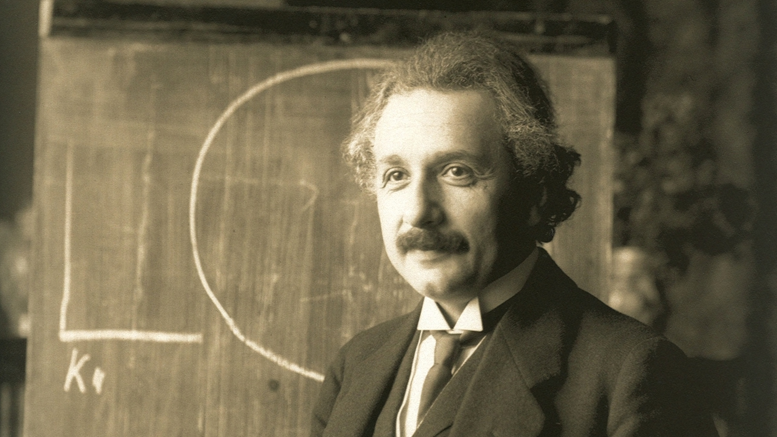When Stevens hired me a decade ago, it installed me for several months in the department of physics, which had a spare office. Down the hall from me, Albert Einstein’s electric-haired visage beamed from a poster for the “World Year of Physics 2005.” The poster celebrated the centennial of the “miraculous year” when a young patent clerk in Bern, Switzerland, revolutionized physics with four papers on relativity, quantum mechanics and thermodynamics. “Help make 2005 another Miraculous Year!” the poster exclaimed.
As 2005 wound down with no miracles in sight, the poster took on an increasingly poignant cast. Passing the office of a physics professor who made the mistake of leaving his door open, I stopped and asked the question implicitly posed by the “Year of Physics” poster: Will there ever be another Einstein? The physicist scrunched up his face and replied, “I’m not sure what that question means.”
Einstein is the most famous and beloved scientist of all time. We revere him not only as a scientific genius but also as a moral and even spiritual sage. Abraham Pais, Einstein’s biographer, called him “the divine man of the 20th century.” To New York Times physics reporter Dennis Overbye, Einstein was an “icon” of “humanity in the face of the unknown.” So to rephrase my question: Will science ever produce another figure who evokes such hyperbolic reverence?
I doubt it. The problem isn’t that modern physicists can’t match Einstein’s intellectual firepower. Physics hasn’t produced more Einsteins, journalist James Gleick once suggested, because there are so many brilliant physicists alive today that it has become harder for any individual to stand apart from the pack. In other words, our perception of Einstein as a towering figure is, well, relative.
Gleick’s explanation makes sense. However, I would add a corollary: Einstein seems bigger than modern physicists because–to paraphrase Norma Desmond in Sunset Boulevard–physics got small. For the first half of the last century, physics yielded not only deep insights into nature–which resonated with the disorienting work of creative visionaries like Picasso, Joyce and Freud–but also history-jolting technologies like the atomic bomb, nuclear power, radar, lasers and transistors. Physics mattered.
Over the past few decades, many physicists have bogged down pursuing a goal that obsessed Einstein in his latter years: a theory that fuses quantum physics and general relativity, which are as incompatible, conceptually and mathematically, as plaid and polka dots. Seekers of this “theory of everything” have wandered into fantasy realms of higher dimensions with little or no empirical connection to our reality.
Moreover, no modern scientist has approached Einstein’s extra-scientific reputation. Einstein took advantage of his fame to speak out on militarism and other vital issues through lectures, essays, interviews, petitions and letters to world leaders. When he spoke, people listened.
In 1952 Israel’s government asked Einstein if he would consider becoming the country’s president. Einstein politely declined–perhaps to the relief of the Israeli officials, given his commitment to pacifism and a global government. (While awaiting Einstein’s answer, David Ben-Gurion, the prime minister, reportedly asked an aide, “What are we going to do if he accepts?”)
It is hard to imagine any modern scientist being lionized in this manner. One reason may be that science as a whole has lost its moral sheen. The public is warier than ever of the downside of scientific advances, whether nuclear energy or genetic engineering. Moreover, as modern science has become increasingly institutionalized, it has started to resemble a guild that values self-promotion above truth and the common good. Einstein also possessed a moral quality that set him apart even in his own time. According to Robert Oppenheimer, the dark angel of nuclear physics, Einstein exuded “a wonderful purity at once childlike and profoundly stubborn.”
My students give me hope that science has a bright future. But I suspect that we will never see Einstein’s like again, because he was the product of a unique convergence of time and temperament. Einstein, incidentally, didn’t think he lived up to his own reputation. “I am no Einstein,” he once said. On top of all his other qualities, the man was modest.
John Horgan directs the Center for Science Writings at Stevens. This column is adapted from one originally published in The New York Times.
